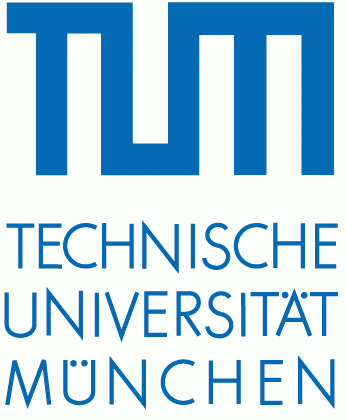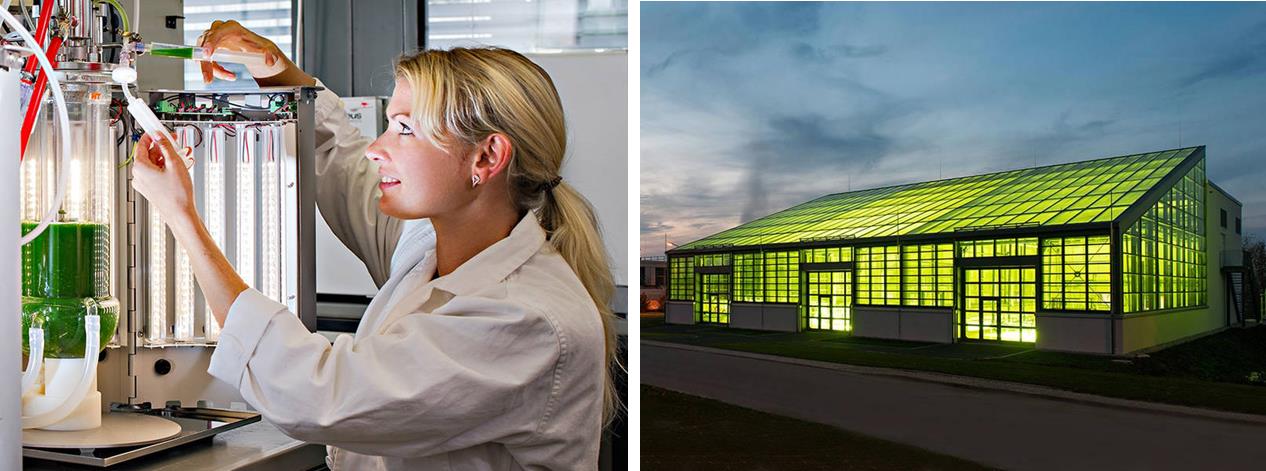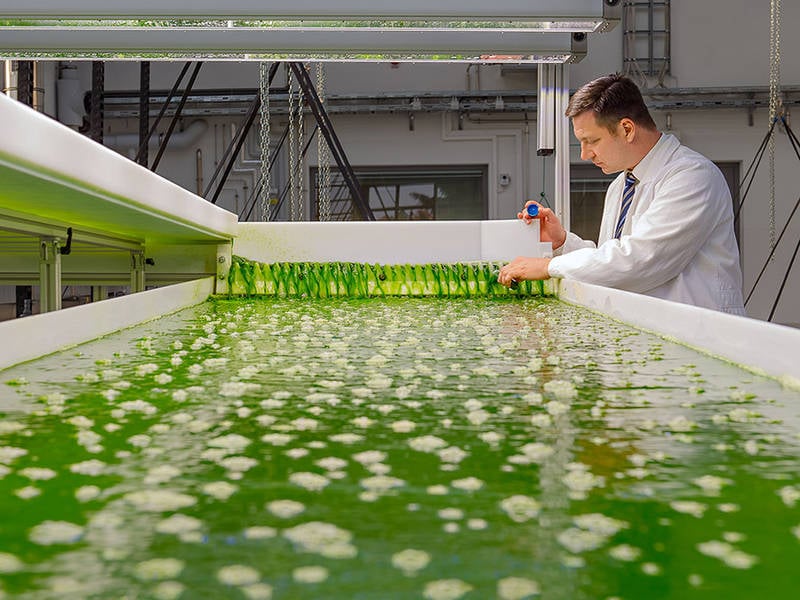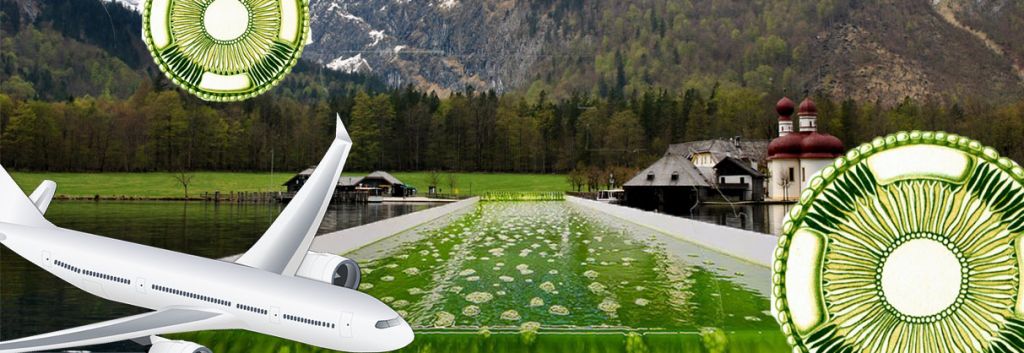The Technology University of Munich (TU München) has built a unique global-climate simulating Algal plant on the Ludwig Bölkow Campus in Ottobrunn (Bavaria). Able to cultivate algal strains from all over the world, the research team hopes this will allow them to study and discover new types to be exploited by Biotechs for biofuel production, which is of high interest to Aviation companies such as Airbus, alongside other renewable energy-focused industries in Germany.
 Using €10M euros (in a joint-collaboration with Airbus & the Bavarian local government) TU München built a 1500 square metre Algae facility on their Ottobrunn campus. This facility was complete with lab and LED-climate control system, able to simulate growth conditions from all over the world.
Using €10M euros (in a joint-collaboration with Airbus & the Bavarian local government) TU München built a 1500 square metre Algae facility on their Ottobrunn campus. This facility was complete with lab and LED-climate control system, able to simulate growth conditions from all over the world.
TU München and Airbus are particularly interested in the production of bio-kerosene from Algae grown in salt-water closed loop systems. Biofuels made through cultivation of Algal strains can have as much as 10-times the production yield compared to traditional corn crops, without all the added expenses (and environmental baggage) of pesticides and arable land.

This climate system therefore grants the TU München team to explore novel species of algae for this purpose, of which there are estimated to be almost 150,000 different strains (and the biotech has only really exploited 10 commercially…). Thomas Brück, TU München’s professor of Industrial Biocatalytics, explains:
…No one can predict whether or not a specific alga from the South Pacific will be just as productive in Germany as it is in its native environment...[or if] species which are successful in Bavaria would function as well in the light conditions of the Sahara, but now [TU München] can.“
Microalgae have already been established as incredibly valuable to the biotech industry, in part due to their ancient genetic diversity and resilience, providing a bio-platform for production of food supplements (Omega-3 in the diet such as in the case of Simris Alg) and cosmetically in textile dye production for design (Algaemy from Berlin).
The many biotech applications of Algae…The SolarLeaf project in Hamburg (Left – Source: Arup), Textile-printing with Algal dyes (Centre – Source: Blond & Bieber) and production of Omega-3 dietary alternative to fish (Right – Source: Simris Alg)Indeed, one of Arup‘s innovative-design buildings in Hamburg (Germany) is entirely sustained by an Algae bioreactor system (developed by Colt International). This algae panel system encasing the building produces biomass whilst insulating the rooms from noise, cold and generates a natural source of heating. Quite remarkable, really.
The Algae Tech Facility is also part of the “AlgenFlugKraft” (Algae Aircraft Fuel) project in Germany, backed by the Bavarian State Ministry of Economic Affairs, which sounds pretty cool…

With this in mind, cleary the biofuels and agribusiness side of Algae research is of ‘high’ interest to the Aerospace biotech industry (pun intended…). TU München’s brand-new Algae Tech Facility was inaugurated by the Bavarian Minister for Cultural Affairs, Sciences, Arts and Education (Ludwig Spaenle) on Tuesday.





